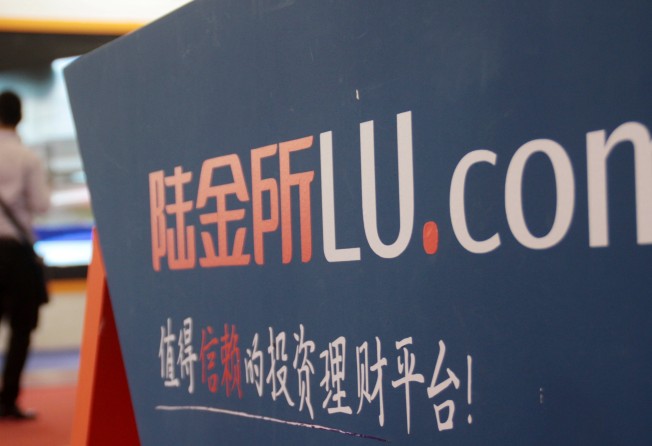Lufax looks to the future of peer-to-peer lending with blockchain technology
- Blockchain will help drive down cost and promote compliance for all transaction parties and intermediaries, says Lufax chief executive Greg Gibb

Lufax, one of China’s leading online wealth management groups has said it is working towards moving its entire peer-to-peer (P2P) lending portfolio, valued at “tens of billions US dollars”, onto the blockchain platform.
Amid the regulatory crackdown on the sector, the immutable nature of how records and data are kept in distributed ledger technology could help serious players in the industry improve their transparency and drive down costs, Lufax chief executive Greg Gibb said at the Hong Kong FinTech Week on Wednesday.
Gibb said he expected more failed platforms to emerge from the P2P industry, so that “hundreds” more platform operators will likely disappear in the short term, from the 1,500 still operating today.
“The problem for the P2P lending sector, not just in China but also globally, is that it is not transparent. So if we could put all the contract terms between a borrower and lender on the blockchain ledger, then these [become] unalterable,” said Gibb.
And if there are any updates on the loan contract terms, these changes will then also be transparent and viewable by all parties, including the regulators, custodians, and all transaction parties, he said.
Gibb said the Ping An Insurance unit plans to use blockchain technology to verify the eligibility and documentation for qualified investors in China.
Rules governing the asset management industry, announced in May, define a qualified investor as those that have net financial assets of 3 million yuan (US$432,950), and gross financial assets of 5 million yuan.
Gibb said Lufax will use blockchain to keep updated documentations of clients, such as bank statements, or those that prove their source of income, in the blockchain ledger.
“This would be similar to a digital passport, [whereby] this is trustworthy information that also does not require banks to revalidate frequently that the investor is a qualified investor,” he said.
Sources said Lufax was planning an initial public offering in Hong Kong back in April that could value the firm at about US$60 billion. Gibb said Wednesday that the Lufax would “list when the time is right”.
However, he said as the fintech market is maturing, the day when the capital market would simply value a company at “10 times its revenue” based on top line and customer figures are over.
“For a business that is operating for four or five years, people are starting to ask how much money you are making,” he said, adding that the capital market is deciding who is the winner as the industry undergoes consolidation.